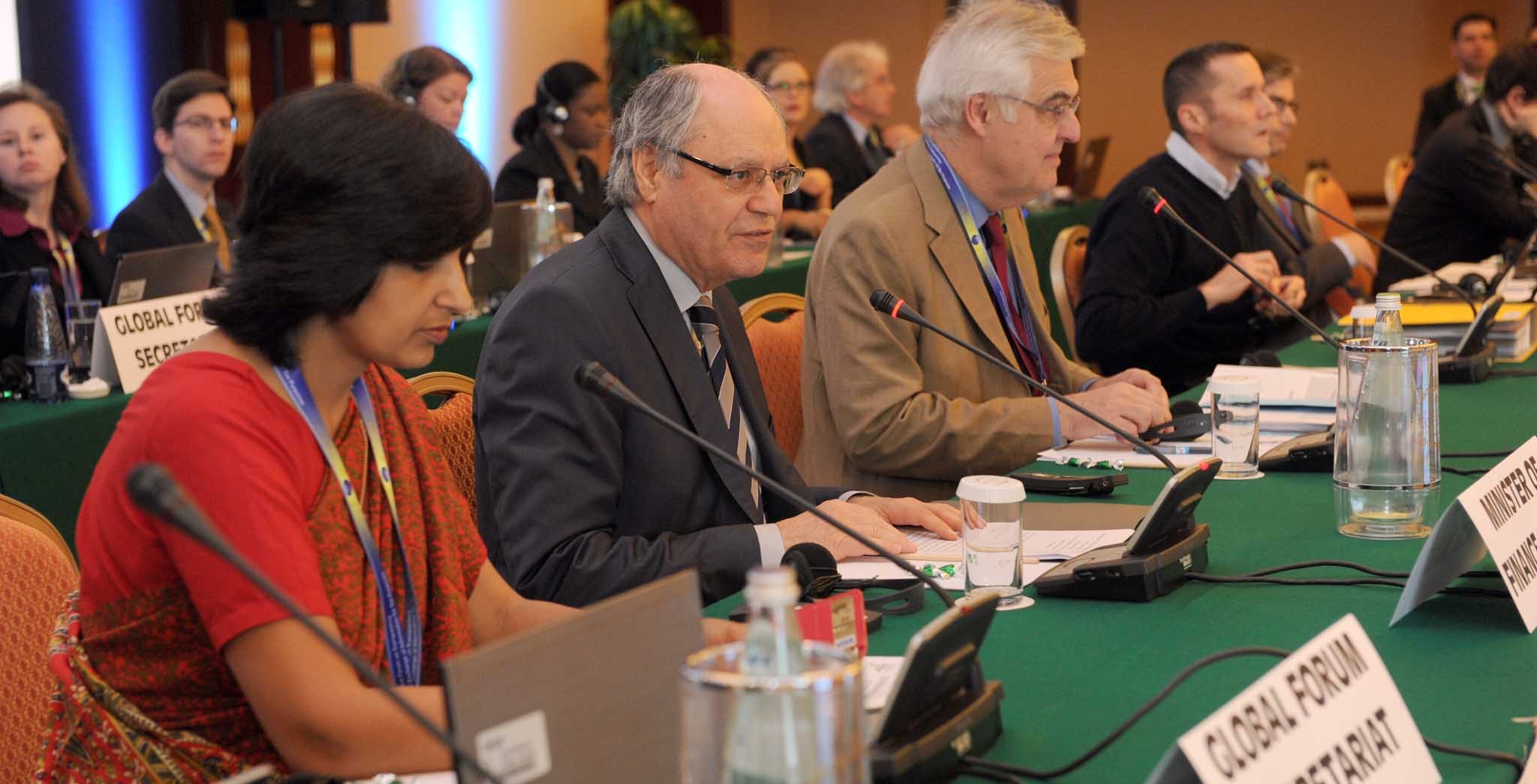“Malta is committed towards tax transparency, and has tirelessly and consistently undertaken efforts in that regard, because we fully believe in the importance of this process,” Finance Minister Prof. Edward Scicluna said.
Prof. Scicluna was delivering the opening address of the 15th meeting of the OECD’s Global Forum Peer Review Group, which was held in Floriana in March 2014.
The Conference was attended by roughly 100 participants from various countries such as the Cayman Islands, France, Germany, China, India, Italy, Japan, Mauritius, the Netherlands, Norway, Singapore, Spain, Switzerland, the United Kindgdom, and the United States.
The Peer Review Group is a working group set up by the Global Forum to carry out an in-depth monitoring and review of the implementation of the standards of transparency and exchange of information for tax purpose.
[nggallery id=183]
In his address, Prof. Scicluna stressed that “taxes are a core part of state-building and one of the most visible signs of the social contract between citizens and the state. Fair and transparent tax systems demonstrate good governance.”
“They also shape government legitimacy by promoting accountability of governments to tax-paying citizens, and by stimulating effective state administration and good public financial management,” he added.
He noted that Malta has engaged in various international initiatives concerning transparency in tax matters since the year 2000. Back then, Malta gave an advanced commitment not to introduce harmful tax practices, and together with the Netherlands, chaired the Global Forum Sub-group that drafted the Tax Information Exchange Agreement 2002 Model, a model that has since become of the international standard in relation to tax transparency.
Prof. Scicluna also noted that since Malta joined the European Union in 2004, the country has adopted all standards and requirements applying in the EU relating to exchange of information such as, those required under the Savings Tax Directive and the EU Administrative Cooperation Directive.
He said that more recently, Malta has continued to engage in other initiatives in tax transparency by becoming a party to the Multilateral Convention on Mutual Assistance in Tax Matters, as well as signed an Intergovernmental Agreement with the United States of America, in order to implement FATCA. Malta has also joined the so-called G5-plus initiative on automatic exchange of information. In addition, Malta will also be participating in the Global Forum Automatic Exchange of Information Group meetings.
Prof. Scicluna also noted that Malta has hosted a Global Forum meeting in 2001 where the 2002 Model TIEA was discussed and that apart from participating in Global Forum and Peer Review Group meetings, Malta has also supported the work of this Group by providing assessors for a number of Peer Reviews.
“At the domestic level, Malta has strengthened its tax legislation and its internal procedures in order to be in a better position to exchange information in an effective and efficient manner with its tax treaty partners. Malta has also worked to ensure that the necessary safeguards concerning confidentiality are in place. This brought Malta in line with the current standard, and eventually led to the positive results that were published in the Global Forum report on Malta’s legal and regulatory practices in this area,” Prof. Scicluna said.
“All these steps constitute concrete instances of Malta’s continued commitment towards tax transparency, and these we have undertaken because we fully believe in the importance of this process,” Prof. Scicluna added.
Prof. Scicluna concluded by saying that taxes are crucial for state-building, economic opportunity and social cohesion. “Overall, an open, transparent and accountable government with an equitable and fair tax system can help significantly in improving the lives of all its citizens.”
– Thursday, 27th March, 2014
